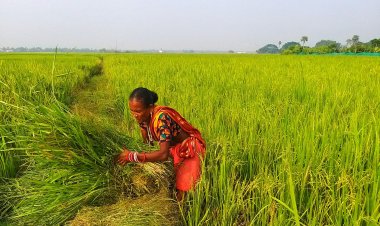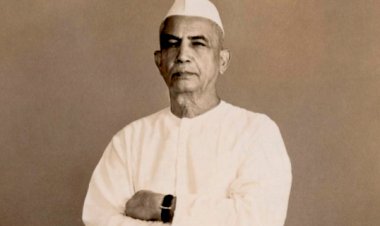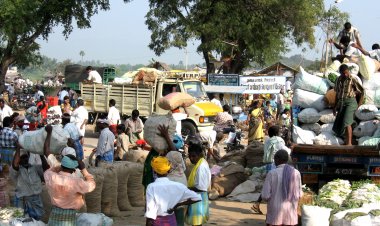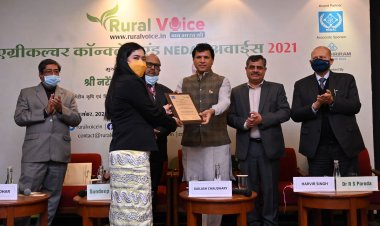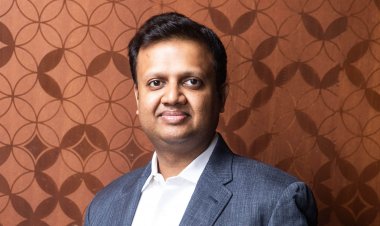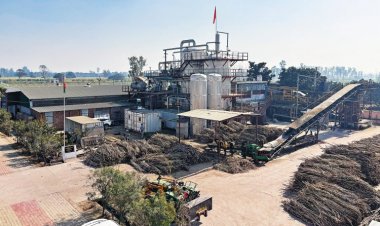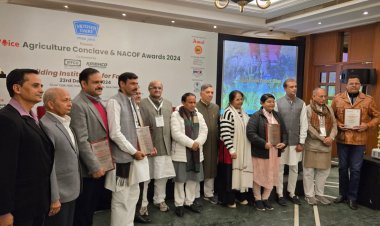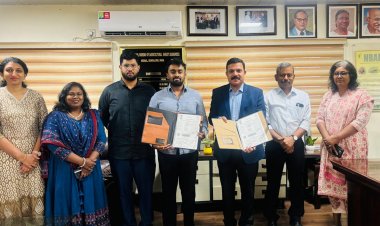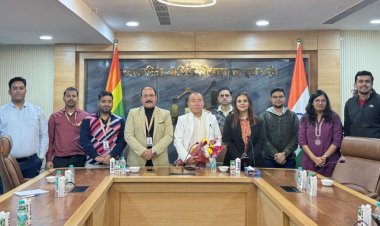Dr Swaminathan: The Father of Green Revolution who strode the agriculture sector like a Colossus
In addition to driving the development of high yielding rice varieties in the country, add Swaminathan was instrumental in building and strengthening the agriculture research, extension and lab to land concept. These measures in the Indian Council of Agricultural Research (ICAR) system and the State Agricultural Universities network have stood the Indian agriculture in good condition to meet the growing food needs over the decades.
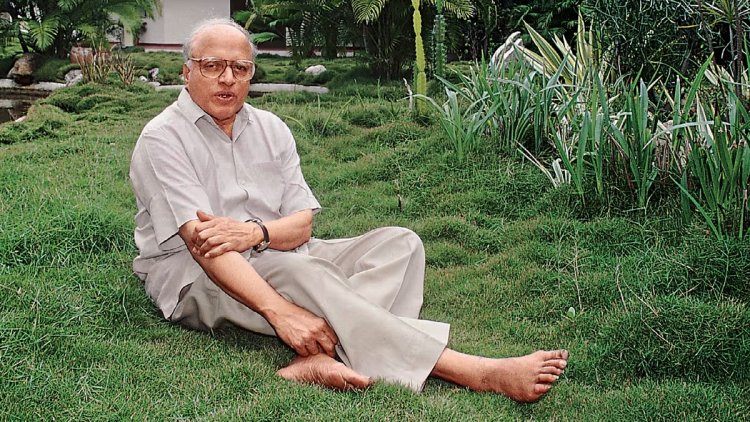
Dr M S Swaminathan, one of the architects of India’s ‘Green Revolution’, passed away today at the ripe age of 98 in Chennai due to age related issues. A multi-faceted personality, Dr Mankombu Sambasivan Swaminathan has played a significant role in the overall growth of Indian agriculture, post-Independence. He won the first World Food Prize in 1987, considered the ‘Nobel prize’ equivalent for Agriculture. The Indian government honoured him with the Padma Vibhushan Award.
Dr Swaminathan, who has been a driving force of the globally renowned, Dr M S Swaminathan Research Foundation, Chennai, which he set up over 3 decades ago, is survived by his three daughters- Madhura, Nitya and Soumya. Incidentally, Dr Soumya Swaminathan was the Chief scientist of the WHO, during the crucial phase of the COVID19 Pandemic and played an important role in combating it.
In addition to driving the development of high yielding rice varieties in the country, add Swaminathan was instrumental in building and strengthening the agriculture research, extension and lab to land concept. These measures in the Indian Council of Agricultural Research (ICAR) system and the State Agricultural Universities network have stood the Indian agriculture in good condition to meet the growing food needs over the decades.
The United Nation’s Environment Programme (UNEP) called him the ‘Father of Economic Ecology’ for his concerns for the environment even while pioneering efforts to develop and introduce high yielding varieties of rice and wheat during the 1960’s and 1970’s-the most critical phase when India’s food situation was very tough.
The Indian government with the then agriculture minister, Mr. C Subramanian enlisted. M.S. Swaminathan, D.S. Athwal, Norman Borlaug and a dedicated band of Indian agriculture scientists to take on the challenge. With the backing of the US aid through the PL-480 and the organised strategy, they implemented what has become known as the ‘Green Revolution’ of the late 1960’s, which pulled the nation out of a possible famine and set it onto the path of food self-sufficiency over the next few decades. That India is a net exporter, at least since post 2000 in several agricultural products is testimony to this remarkable effort.
Born in Kumbakonam district in Tamil Nadu on August 7, 1925 into a middle-class family, Swaminathan was moved by the enormity of the Bengal Famine of the early 1940’s. Against his parents wish of becoming a doctor, he was awn into agriculture.
Interestingly, M.S. Swaminathan was the first top Scientist I met within weeks of my joining PTI in April 1983 as a Trainee. It was at the then (All India Coordinated Rice Improvement Project or AICRIP) and now Directorate of Rice Research in Hyderabad. I could get an interview and was struck by his easy accessibility, communication skills and ability to explain in a simple style. It got me a good story too.
Over the next three decades met and covered him on innumerable occasions. Swaminathan has won over 40 national and international awards. A few years ago, at the age of 93, he was bestowed with the first World Agriculture Prize instituted by the Indian Council of Food & Agriculture. There is hardly any prize in the world that . Swaminathan has not won. The Ramon Magsaysay Award and the Albert Einstein Prize are other notable recognitions.
His imprint is there on all Agriculture policies in India in the past 50 years. Innumerable reports on the direction of Indian agriculture he has authored and committees he has chaired. Many State governments had him as their advisor. He was always a field man, leading the scientists and following the farmers into the fields to both implement and learn the best practises.
. MS was also a leading figure in the global agricultural field. He became Director of the International Rice Research Institute (IRRI), Manila in Philippines. He paved the way for many Indian scientists to join there too. He got many global collaborations and funds from the International agricultural network and Institutions. His MS Swaminathan Research Foundation in Chennai has grown both in size, activity and reach with liberal funds from government and international agencies. It’s contributions to rural, tribal and underprivileged sectors, especially in farming and livelihood with ecological concerns are widely appreciated.
Controversies have also dogged. MS in his long career. His views on genetic research attracted mixed reactions. During his leadership at the very height of testing times in the ICAR and IARI frustrations among young agriculture scientists surfaced for a brief period. The negative impact of the green revolution on the agriculture land, especially in the Indo-Gangetic area, falling victim to chemical overuse and consequent land degradation attracted criticism. Being the scientist with the best of research updates, Swaminathan was quick to coin the term ‘Evergreen Revolution’ for ensuring sustainability of agriculture with the underlying responsibility of protecting the environment.
The views of. Swaminathan carried heavy weight and respect for decades in the Indian and global scientific world. During the mid-1990’s, his sheer dominating influence ensured that the Agriculture Research and Education Departments were lead by professional Agri experts and not taken over by career bureaucrats. The case in point is during the crisis involving RS Paroda, then Director General, ICAR (Indian Council of Agricultural Research), who came under a cloud of allegations. It was the intervention of MS that saved the day for the ICAR system and Paroda, who came through clean.
Despite his high achievements, MS always remained humble and easily accessible. He also put his writing and communication skills to effective use by contributing to the media and delivering lectures across the country and world very frequently.



 Join the RuralVoice whatsapp group
Join the RuralVoice whatsapp group

















